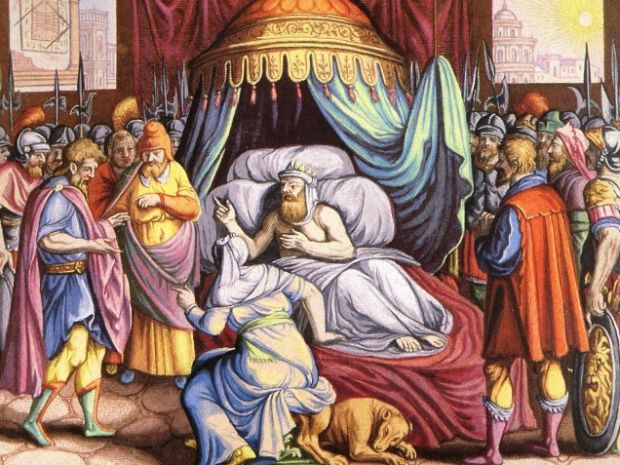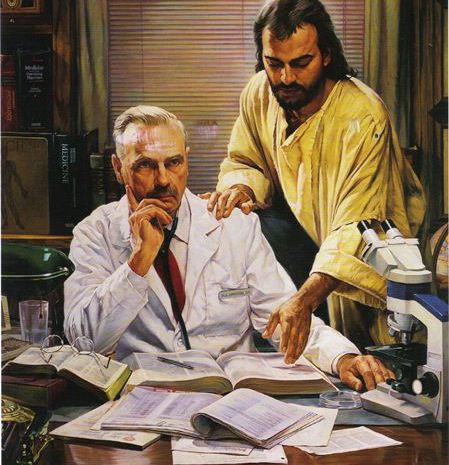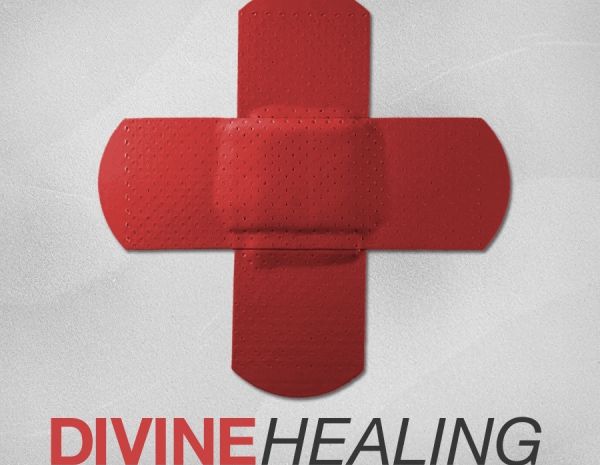
5 Sept 2014 by Lim Poh Ann-
Can we seek medical treatment if we believe in miraculous healing?
Three years ago, Jane, a fervent Christian in her 50’s, noticed a small breast lump. As she believed in miraculous healing, she adamantly refused medical treatment. That proved to be a costly decision. Recently, she succumbed to breast cancer –– whereas she could have been cured if she had sought medical treatment early.
However, her story does not discount the fact that God still performs miracles today. Even terminally ill patients have testified to miraculous healing.
More often, however, healing takes place when God works together with doctors and medicine. Let’s explore some of the issues related to faith and medicine.

Is God pro-health?
God desires that man enjoy the blessings of good health. One of His many names is Jehovah-Rapha––‘God our healer’. The Israelites were promised fertility and health if they obeyed God. They were also warned that they will be afflicted with diseases if they disobeyed Him (Deuteronomy 28: 27,28).
Healing was as much a part of Jesus’ ministry as preaching. Among those healed were lepers, paralytics and the blind. In the majority of cases, Jesus healed people without requiring faith on their part (Mark 6:56). Sometimes He performed few miracles because of their lack of faith. But, nevertheless, He laid His hands on a few sick people and healed them (Mark 6:5).

God, being sovereign, does not heal always. And we cannot possibly fathom why some remain unhealed. Many disabled people gathered round the pool of Bethesda. But Jesus chose to demonstrate His healing virtue to one invalid (John 5:2-9).
Total wellness is an integral part of God’s will for His people: “Beloved, I pray that you may prosper in all things and be in health, just as your soul prospers” (3 John 1:2).
Does God heal only through supernatural means?
Having faith does not necessarily mean we have to shun medical treatment. Isaiah ordered a poultice to be applied to King Hezekiah’s boil (Isaiah 38:21). The apostle Paul told Timothy to drink some wine for his stomach ailments (1 Timothy 5:23). If “a merry heart doeth good like a medicine” (Proverbs 17:22), then the latter has a definite place in the life of believers. Certain plants (herbs) have healing properties (Ezekiel 47:12). A notable example is foxglove (digitalis) which has long been used to improve the pumping ability of a weak heart.

Do doctors have any role to play in healing?
Jesus certainly does not discount the role of doctors in treating diseases. Otherwise He would not have said, “Those who are well have no need of a physician but those who are sick” (Luke 5:31). The apostle Luke was a doctor who followed Jesus in His healing ministry. Jesus seems to imply that doctors and practitioners of supernatural healing should happily coexist. Why can’t both camps work together and learn to respect each other?
Does seeking medical treatment signify a lack of faith?
How can we be deemed as lacking in faith––or considered as “second-class” believers––when we seek medical treatment? Scripture expressly says that medicine, herbs and physicians all have a role to play in healing.

Does believing in miraculous healing mean that we cannot seek medical treatment?
Believers who are sick should avail themselves of miraculous healing:
- Affirm and declare by faith that God heals all our diseases (Psalm 103:3).
- Let the elders of the church pray for them (James 5:14).
- Seek to be ministered by those endowed with the gift of healing (1 Corinthians 12:28,30).
However, the sick need not shun or stop medical treatment as a demonstration of faith. Doctors treat but God heals. ‘Faith healers’ who insist that patients stop medical treatment––as a precondition for supernatural healing––may face litigation if death occurs. For example, a diabetic patient may slip into coma and die if drugs (or insulin injections) are suddenly stopped.

Shouldn’t medicine be rejected as it represents man’s ingenuity?
The view that any product of man’s creativity is evil is indeed seriously flawed. Having created the world, God gave man the injunction to multiply, subdue and rule the earth (Genesis 1:28). This ‘cultural mandate’ drives all of man’s productive endeavours––from scientific to economic; from sustainable development to environmental conservation. Our creative potential bears the marks of our Creator, who created each snowflake distinct from the rest.
Countless lives have been saved since the advent of antibiotics and vaccination. It’s baffling why some hyper-spiritual ‘faith healers’ wholeheartedly embrace the benefits of modern inventions but reject modern medicine. Logically, they should stop travelling in cars and airplanes, and stop enjoying the benefits of mobile technology.
Some ‘faith healers’ view modern medicine as evil as the serpent has long been a symbol of the medical fraternity. Clearly they have forgotten the account when God told Moses to make a bronze serpent. Those bitten by snakes would not die if they looked at the serpent set on a pole (Numbers 21:8-9).

Those with terminal cancer with bony metastasis have been told, if their faith in God is strong, they would be able to endure the excruciating pain. Is there any merit in such a practice?
If the pain persists despite prayer and healing ministry, the humane option is to give the patient a strong pain killer such as morphine. Why prolong their agony by withholding medicine? Let them spend their last days in comfort. No healer, no matter how impressive his or her list of success stories, should be found lacking in a most needful quality––compassion.
Some patients have been told they are not healed because they lack faith. Is this the right thing to do?
Whether their faith is great or feeble (Mark 9:24), patients who seek miraculous healing trust God. They also respect the healer for his or her successful track record. Why burden them with false guilt in their darkest moments? However, in cases where sin hinders healing, the foregoing does not apply.

Is sincerity enough?
Jane sincerely believed she could experience miraculous healing. She thought that the kind of faith which pleased God was that which rejected medical intervention.
But her sincerity wasn’t enough. The tragedy was that she had placed great faith in a particular ‘faith healer’––instead of digging into scripture to discover for herself the truth regarding faith and medicine.
A proper understanding of the relationship between faith and medicine is essential. God’s people are destroyed for lack of knowledge (Hosea 4:6). Tragedies similar to Jane’s case could have been prevented if people grasp this truth: Miraculous healing and medical treatment are .

AN APPROACH TO SICKNESS When we are sick or minister to those who are sick, what approach should we adopt?
- Remove hindrances to healing––unconfessed sin, unbelief.
- Seek miraculous healing and medical treatment. These options are not mutually exclusive.
- Wait upon God.
- Acknowledge His sovereignty. Commit the results to God.
- When miraculous healing does not occur, do not put the blame on the sick.
- Be open-minded about miraculous healing without medical intervention.
- Don’t try to figure it out––God’s ways are beyond us.
- His peace and presence will comfort us when all else fails.
The above article was first published in the Oct- Nov 2013 issue of Asian Beacon magazine, Vol. 45 No. 5
RELATED POSTS:
God does not answer all our whys this side of eternity when we’re confronted with non-healing––even when all the prerequisites have been fulfilled for spiritual healing.
A biblical view of sickness and healing
| Share the Good News |




Leave a Reply